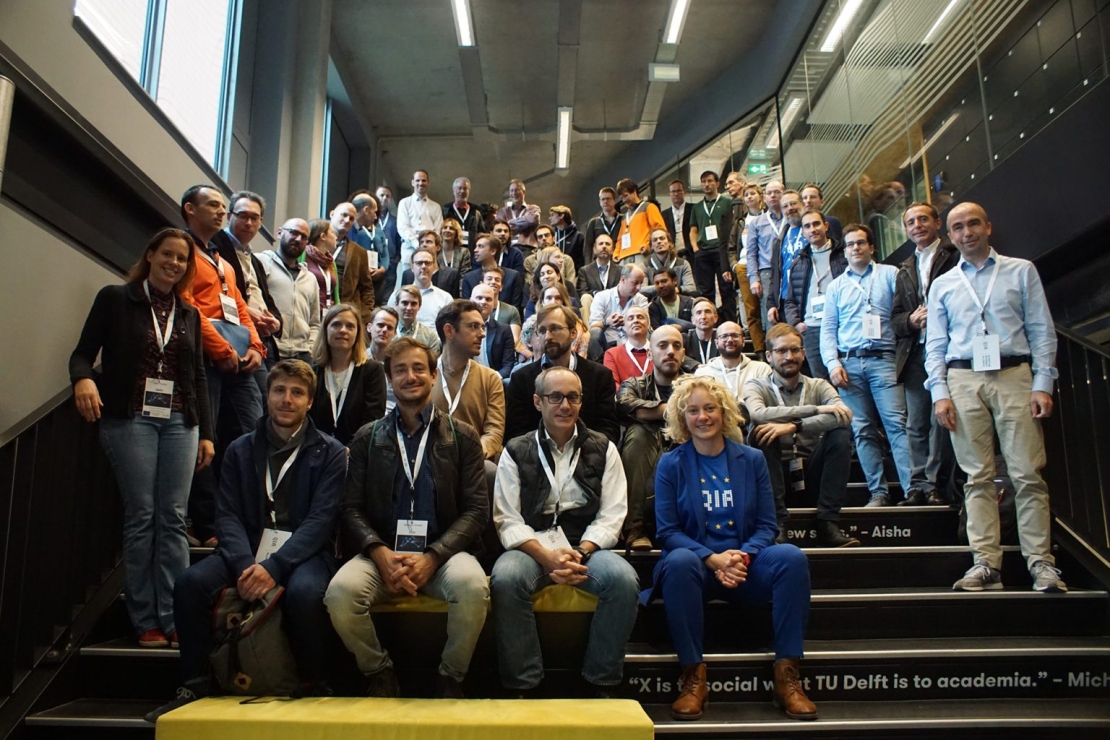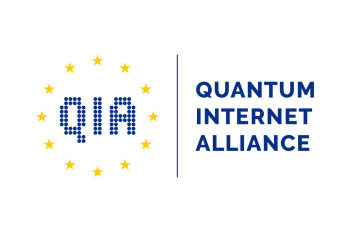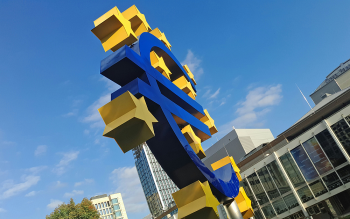The European Commission has selected ‘quantum internet’ as a strategic area for investment to build a global quantum internet made in Europe. The Quantum Internet Alliance (QIA), led by QuTech—a collaboration between the TU Delft and TNO—will implement a seven-year program with the aim to develop a full-stack prototype network connecting distant cities. This way, QIA will drive an innovative European quantum internet ecosystem capable of leveraging QIA world-leading developments and that translates into innovative engineering solutions. The prototype network will be able to connect users in two metropolitan areas, hundreds of kilometers apart. The first phase of the program, which will run for 3,5 years from October 2022, and has a total budget of 24 million euros.
Established in 2017 by European leaders in the field QuTech, ICFO, University of Innsbruck, and the Paris Centre for Quantum Computing, the European Quantum Internet Alliance is an established world-leading team consisting of 40 partners, including academic institutions, telecom operators, system integrators and quantum tech startups across Europe. Their common goal is to address all challenges towards building a world-first prototype of a large-scale quantum network in Europe. In recent years, QIA has laid the foundations for achieving its prototype network, including the first multi-processor quantum network in the lab, the first quantum software and network stack, and a state-of-the-art quantum repeater system for achieving long-distance quantum communication in the future.

The Quantum Internet Alliance team at the kick-off event
“QIA is on a moonshot mission to build a prototype quantum network that has the potential to become the first of its kind”, says Prof. Dr. Stephanie Wehner (QuTech), director of the Quantum Internet Alliance, “This is an immensely challenging endeavor, and I am excited that with this program we now have the opportunity to reach for the dream of making quantum internet a practical reality for all.”
The objective is to build two metropolitan scale networks containing quantum processors and photonic clients, connected by a long-distance fiber backbone using quantum repeaters. This network will be fully programmable to allow the realization of any application supported by the hardware using platform-independent software. Photonic clients will enable a cost-effective access to quantum internet technology in the future. “Developing the ability to interconnect metropolitan networks via quantum repeater based long-distance links will be a game changer”, says Prof. Dr. Hugues de Riedmatten (ICFO), QIA Executive Team, “It will demonstrate the ability for inter-networking, paving the way for industrial scaling towards a true Quantum Internet that connects many more metropolitan networks via long-distance backbones between them.”
“Our goal is to create quantum internet innovation that will ultimately be available to everyone. The prototype network provides a strong focus to accelerate the transition from research to engineering.”, says Dr. Stephan Ritter, Director Quantum Solutions at TOPTICA Photonics, and QIA Executive Team. “We are now working on establishing a Quantum Internet Innovation Platform in Europe to pave the way for bringing technology to the market.”
Quantum Internet technology promises to provide various benefits to diverse sectors, such as the security of the telecommunications and financial sectors. In phase 1, QIA aims to identify several pilot use cases that can be showcased on early stage quantum internet technology.
“Right now, researchers have invented many possible application protocols for a quantum internet. We are now working on the next step to translate this potential of quantum internet technology to specific use cases relevant for industry”, says Dr. Peter Hinrich (SURF), QIA Executive Team. “We believe in enabling everyone to explore the potential of such technology and will host a variety of public events such as use case workshops and hackathons open to the public.” Previously, QIA has made a software development kit available that allows anyone to explore how to program quantum network applications via Quantum Network Explorer.
“What really sets QIA apart, is that we are advancing a system that is full-stack, bridging the gap from quantum hardware to high-level software. We are thus building a complete system ready to be integrated by the telecommunications industry.”, says Dr. Wojciech Kozlowski (QuTech), QIA Executive Team.
The Quantum Internet Alliance brings together industry and academia across diverse disciplines ranging from computer science to experimental physics. “We believe it’s a team effort to build a quantum internet and bring the benefits of such technology to society.”, says Prof. Dr. Tracy Northup (University of Innsbruck), QIA Executive Team. “We are looking to expand QIA’s activities to all EU member states, and already invite students, engineers and your entrepreneurs to participate in our internship programme to join us on our mission to build a global quantum internet.”
Find more information on the QIA website.



